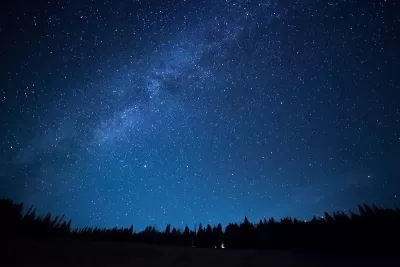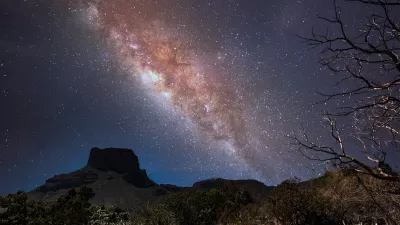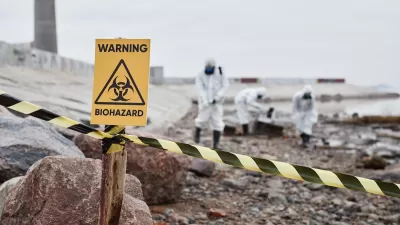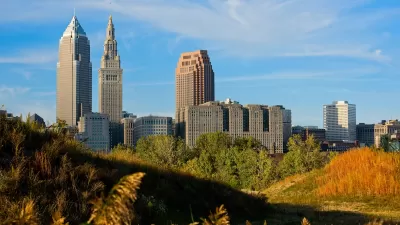Why light pollution harms humans and the environment.

A Q&A in the Daily Yonder between Anya Petrone Slepyan and astrophotographer Peter Lipscomb explains the importance of dark skies for humans.
Lipscomb calls the night sky ‘the world’s oldest natural resource,’ saying, “the night sky is both a global ecosystem and something that has informed and inspired our kind for all the thousands of years of human history.” From using it to create calendars and navigation to its spiritual significance across cultures, humans have relied on the sky and the stars throughout our history.
Now, “What was common to the human experience across the globe less than 150 years ago has now become the domain of a few.” For Lipscomb, this means that we are “losing an opportunity to connect to a part of our natural world that defines what it means to be a creature on this planet.” Additionally, the loss of dark nights can disrupt our rest and sleep cycles, leading to health problems.
Lipscomb supports efforts to mitigate light pollution. His suggestions: “Light things only to the level they need to be lit;” “Keep the light facing downwards;” “Avoid light trespassing by setting and shielding the light properly so that it is contained within the property of its origin;” and “Avoid blue-spectrum LED lights.” For Lipscomb, “All it takes is just being sensible as far as how we use our outdoor lighting.”
FULL STORY: Q&A: Why Do Humans Need Dark Skies?

Planetizen Federal Action Tracker
A weekly monitor of how Trump’s orders and actions are impacting planners and planning in America.

San Francisco's School District Spent $105M To Build Affordable Housing for Teachers — And That's Just the Beginning
SFUSD joins a growing list of school districts using their land holdings to address housing affordability challenges faced by their own employees.

The Tiny, Adorable $7,000 Car Turning Japan Onto EVs
The single seat Mibot charges from a regular plug as quickly as an iPad, and is about half the price of an average EV.

With Protected Lanes, 460% More People Commute by Bike
For those needing more ammo, more data proving what we already knew is here.

In More Metros Than You’d Think, Suburbs are Now More Expensive Than the City
If you're moving to the burbs to save on square footage, data shows you should think again.

The States Losing Rural Delivery Rooms at an Alarming Pace
In some states, as few as 9% of rural hospitals still deliver babies. As a result, rising pre-term births, no adequate pre-term care and "harrowing" close calls are a growing reality.
Urban Design for Planners 1: Software Tools
This six-course series explores essential urban design concepts using open source software and equips planners with the tools they need to participate fully in the urban design process.
Planning for Universal Design
Learn the tools for implementing Universal Design in planning regulations.
Smith Gee Studio
City of Charlotte
City of Camden Redevelopment Agency
City of Astoria
Transportation Research & Education Center (TREC) at Portland State University
US High Speed Rail Association
City of Camden Redevelopment Agency
Municipality of Princeton (NJ)





























